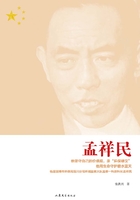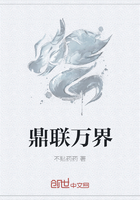When I returned to Paris, L。 asked me if I would not like to give a fête for all my friends, and told me to draw up a programme for it, for which he would be delighted to give carte blanche。It seems to me that rich people never know how to amuse themselves。If they give a dinner?party, it is not very diferent from a dinner given by a poor concierge, and I had always thought how marvellous a fête one could give, if only one had enough money。And this is how I managed。
The guests were invited to arrive at four o'clock in the afternoon at Versailles, and there, in the park, were marquees with every sort of refreshment, from caviar and champagne to tea and cakes。 After this, on an open space where tents had been erected, the Colonne orchestra, under the direction of Pierné,gave us a programme of the works of Richard Wagner。I remember how wonderful was the Siegfried Idyll under the shade of the great trees on that beautiful summer afternoon, and how solemn, just as the sun was setting, the tones of the Siegfried Funeral March。
After the concert, a magnificent banquet invited the guests to more material pleasures。 This banquet, of varied and wonderful courses, lasted until midnight, when the grounds were illuminated, and, to the strains of a Vienna orchestra, everyone danced until the small hours。
This was my idea of how, if a rich man must spend money on entertaining his friends, it should be done。 To this fête came all the élite and all the artists of Paris, and they really appreciated it。
But the strange part of it all was that, although I had arranged it all to please L。,and it had cost him 50,000 francs(pre?war francs too!),he was not present。
About an hour before the fête I received a telegram saying that he had had a stroke and was too ill to come, but that I was to receive the guests without him。
No wonder that I felt inclined to become a Communist when I so often had exemplified for me the fact that for a rich man to fnd happiness was like Sisyphus trying to roll his stone uphill from Hell。
That same summer L。 took it into his head that we should be married, although I protested to him that I was against marriage。
“How stupid for an artist to be married,”I said,“and as I must spend my life making tours around the world, how could you spend your life in the stage?box admiring me?”
“You would not have to make tours if we were married,”he answered。
“Then what should we do?”
“We should spend our time in my house in London, or at my place in the country。”
“And then what should we do?”
“Then there is the yacht。”
“But then what should we do?”
L。 proposed that we should try the life for three months。“If you don't like it, I shall be much astonished。”
So that summer we went to Devonshire, where he had a wonderful chateau which he had built after Versailles and the Petit Trianon, with many bedrooms and bathrooms, and suites, all to be at my disposition, with fourteen automobiles in the garage and a yacht in the harbour。 But I had not reckoned on the rain。In an English summer it rains all day long。The English people do not seem to mind it at all。They rise and have an early breakfast of eggs and bacon, and ham and kidneys and porridge。Then they don mackintoshes and go forth into the humid country till lunch, when they eat many courses, ending with Devonshire cream。
From lunch to five o'clock they are supposed to be busy with their correspondence, though I believe they really go to sleep。 At five they descend to their tea, consisting of many kinds of cakes and bread and butter and tea and jam。After that they make a pretence of playing bridge, until it is time to proceed to the really important business of the day—dressing for dinner, at which they appear in full evening dress, the ladies very décolleté and the gentleman in starched shirts, to demolish a twenty?course dinner。When this is over they engage in some light political conversation, or touch upon philosophy until the time comes to retire。
You can imagine whether this life pleased me or not。 In the course of a couple of weeks I was positively desperate。Now, in the ch teau there was a wonderful ballroom with Gobelin tapestry and a picture of the coronation of Napoleon by David。It seems that David made two such pictures, one of which is in the Louvre, and the other in the ballroom of L。's house in Devonshire。
Noticing my increasing despair, L。 said,“Why don't you dance again—in the ballroom?”
I thought of the Gobelin tapestry and the David picture。
“How can I make my simple gestures before these, on the oily, waxed foor?”
“If that is all that troubles you,”he said,“send for your curtains and your carpet。”
So I sent for my curtains, which were hung over the tapestry, and I placed the carpet over the waxed foor。
“But I must have a pianist。”
“Send for a pianist,”said Lohengrin。
So I telephoned to Colonne:“Spending summer in England, must work, send pianist。”
In the Colonne orchestra there had been a first violinist, a strange?looking man with a very large head which oscillated on a badly made body。This first violinist also played the piano, and Colonne had brought him to me。But this person was so unsympathetic to me that he gave me a sense of absolute physical revulsion whenever I looked at him or touched his hand, and I had begged Colonne not to bring him to see me。Colonne had said he adored me, but I told him I could do nothing against this feeling of repulsion and I simply could not stand him。One evening whenColonne was ill and could not direct for me at the Gaiété Lyrique, he sent this man as his substitute。I was very angry, and said,“I cannot dance if he directs for me。”
He came into the dressing?room to see me, and, looking at me with tears in his eyes, he said:“Isadora, I adore you, do let me direct this once。”
I looked at him coldly。
“No;I must explain that you are physically abhorrent to me。”
Upon which he burst into tears。
The audience was waiting, so Lugné Poe persuaded Pierné to conduct instead。
On a particularly rainy day I received a telegram from Colonne:“Sending pianist。 Arriving such an hour and such a day。”
I went to the station, and what was my astonishment to see this man X。 descending from the train。
“How is it possible that Colonne has sent you?He knows I hate and detest you。”
“Je vous demande pardon, Madame, le cher Maitre m'a envoyé—”he stammered。
When L。 learned who the pianist was, he said:“At least I have no cause for jealousy。”
L。 was still suffering from the effect of what he always considered to have been a stroke, and had with him in the ch teau a doctor and a trained nurse。They were very emphtic as to my line of conduct。I was placed in a far?away room at the other end of the house, and told that on noaccount was I to disturb L。,who had to spend hours every day in his room on a diet of rice, macaroni, and water, and every hour the doctor came to take his blood pressure。At certain times L。was led down to a sort of cage which had been brought over from Paris, in which he sat while thousands of volts of electricity were turned on him, and he would sit there looking extremely pathetic and saying:
“I hope this will do me good。”
All this added considerably to my condition of restlessness, and, combined with the ceaseless rain, may perhaps explain the extraordinary events which followed。
To drown my ennui and dissipate my annoyance, I began to work with X。,much as I disliked him, but whenever he played for me I placed a screen around him, saying:
“You are so unspeakably offensive to me that I cannot bear to look at you。”
Staying at the ch teau was the Countess A。,an old friend of L。's。
“How can you treat the poor pianist in such a way?”she said, and one day she insisted that I should invite him to come with us in the closed auto in which we took a drive every day after lunch。
So, very reluctantly, I invited him。 The auto had no strapontins so we had to sit all on the same seat, I in the centre, with the Countess on my right and X。on the left。As usual, it poured with rain。When we had gone a little way into the country, a feeling of such disgust for X。came over me that I rapped on the glass and told the chaufeur toturn and go home。He nodded, and, wishing to please me, took a sharp turn。The country road was full of ruts and, as the car turned, I was thrown into the arms of X。He closed his arms around me。I sat back and looked at him, and suddenly felt my whole being going up in fames like a pile of lighted straw。I have never felt anything so violent。And, all of a sudden, as I looked at him, I was aghast。How had I not seen it before?His face was perfectly beautiful, and in his eyes there was a smothered fame of genius。From that moment I knew that he was a great man。
All the way back to the house I gazed at him in a kind of passionate trance, and as we entered the hall of the ch teau, he took my hand, and, still keeping his eyes upon mine, drew me gently behind the screen in the ballroom。 How was it possible that from such violent antipathy could be born such violent love?
The only stimulant allowed to L。 at that time was the famous discovery, now being sold by thousands of bottles, which is supposed to stimulate the phagacytes, and the butler was ordered to present this stimulant to the guests every day with L。's compliments, and, although I found out afterwards that the dose should be only a teaspoonful, L。insisted that we should drink it by the wine?glass。
From that day in the auto we had one obsession, to be alone—in the conservatory, in the garden, even taking long walks in the muddy country lanes;but these violent passions have violent ends, and there came a day when X。 had to leave the ch teau, never to return。We made thissacrifice to save the life of a man who was supposed to be dying。
Long afterwards, when I listened to the beautiful music of“The Mirror of Jesus,”I realised that I was right in feeling that this man was a genius—and genius has always had a fatal attraction for me。
But this episode proved to me that I certainly was not suited to domestic life, and so, in the autumn, somewhat wiser and sadder, I sailed for America to fulfil a third contract。 Then, for the hundredth time, I made a firm decision that hereafter I would give my entire life to Art, which, though a hard taskmaster, is a hundred percent。More grateful than human beings。
While on this tour I made a definite appeal to America to help me to found my school。 My three years'experience of the life of the rich had convinced me that it was hopeless, barren, and selfish, and had proved to me that we can find no real joy except in a universal expression。That winter I harangued the audience in the tier boxes of the Metropolitan, and the newspapers brought it out as a head?line scandal,“Isadora Insults the Rich。”I said something like this:
“It has been quoted that I said unkind things about America。 Perhaps I have—that does not mean that I do not love America。Perhaps it means that I love America too much。I once knew a man who was passionately in love with a woman who would have nothing to say to him, and treated him badly。Every day he wrote her an insultingletter。When she asked him,‘Why do you write me such rude things?'he replied,‘Because I love you so madly。'
“A psychologist will tell you the explanation of this story, and probably it is the same with me and America。 Of course I love America。Why, this school, these children, are we not all the spiritual offspring of Walt Whitman?And this dancing, that has been called‘Greek。'It has sprung from America, it is the dance of the America of the future。All these movements—where have they come from?They have sprung from the great Nature of America, from the Sierra Nevada, from the Pacific Ocean, as it washes the coast of California;from the great spaces of the Rocky Mountains—from the Yosemite Valley—from the Niagara Falls。
“Beethoven and Schubert were children of the people all their lives。 They were poor men, and their great work was inspired by and belongs to humanity。The people need great drama, music, dancing。
“We went over to the East Side and gave a performance for nothing。 Some people said to me:‘If you play a symphony of Schubert on the East Side, the people will not care for it。'
“Well, we gave a free performance(the theatre without a box?office—so refreshing),and the people sat there transfixed, with tears rolling down their cheeks;that is how they cared for it。Funds of life and poetry and art are waiting to spring from the people of the East Side。Build for them a great amphitheatre, the only democratic formof theatre, where everyone has an equal view, no boxes or balconies;and—look at that gallery up there—do you think it is right to put human beings on the ceilings, like fies, and then ask them to appreciate art and music?
“Build a simple, beautiful theatre。 You don't need to gild it;no need of all those ornaments and fallals。Fine art comes from the human spirit and needs no externals。In our school we have no costumes, no ornaments—just the beauty that flows from the inspired human soul, and the body that is its symbol, and if my Art has taught you anything here, I hope it has taught you that。Beauty is to be looked for and found in children;in the light of their eyes and in the beauty of their little hands outstretched in their lovely movements。Hand in hand, across the stage, you have seen them, more beautiful than any string of pearls belonging to any of the women who generally sit in the boxes here。There are my pearls and my diamonds:I want no others。Give beauty and freedom and strength to the children。Give art to the people who need it。Great music should no longer be kept for the delight of a few cultured people, it should be given free to the masses:it is as necessary for them as air and bread, for it is the spiritual wine of humanity。”
During this trip to America I had much happiness from the friendship of that artist?genius, David Bispham。He came to all my representations and I went to all his recitals and afterwards, in my suite at the Plaza, we would have supper and he would sing to me,“On the Roadto Mandalay,”or“Danny Deever,”and we laughed and embraced and were delighted with each other。
This chapter might be called“An Apology for Pagan Love,”for now that I had discovered that love might be a pastime as well as a tragedy, I gave myself to it with pagan innocence。 Men seemed so hungry for beauty, hungry for that love which refreshes and inspires without fear or responsibility。After a performance, in my tunic, with my hair crowned with roses, I was so lovely。Why should not this loveliness be enjoyed?Gone were the days of a glass of hot milk and Kant's Critique of Pure Reason。Now it seemed to me more natural to sip champagne and have some charming person tell me how beautiful I was。The divine pagan body, the passionate lips, the clinging arms, the sweet refreshing sleep on the shoulder of some loved one—these were joys which seemed to me both innocent and delightful。Some people may be scandalised, but I don't understand why, if you have a body in which you are born to a certain amount of pain—cutting of teeth, pulling out of teeth, filling of teeth;and everyone,
however virtuous, is subject to illness, grippe, etc。—why should you not, when the occasion presents, draw from this same body the maximum of pleasure?A man who labours all day with his brain, sometimes torn with heavy problems and anxiety—why should he not be taken in those beautiful arms and find comfort for his pain and a few hours of beauty and forgetfulness?I hope that those to whom I gave it will remember it with the same pleasure as I do。I have not timeto write about them all in these memoirs, any more than I can tell in one volume all the beautiful hours I have spent in forests or in the fields, or all the marvellous happiness I have had from symphonies of Mozart or Beethoven, of the exquisite hours given me by such artists as Isaye, Walter Rummel, Hener Skene, and others。
“Yes,”I continually cried,“let me be Pagan, be Pagan!”but I was probably never much more advanced than to be Pagan Puritan, or a Puritanical Pagan。
I shall never forget my return to Paris。 I had left my children at Versailles with a governess。When I opened the door, my little boy came running towards me, with golden curls making an aureole about his lovely face。I had left him a little baby in the cradle。
In 1908 I had bought Gervex's studio at Neuilly, which had a music room like a chapel, and I now went to live there with my children, and in this studio I used to work all day, and sometimes all night too, with my faithful Hener Skene, who was a pianist of great talent and indefatigable energy for work。 We used often to begin to work in the morning, and as the daylight never penetrated into this studio, which was hung round with my blue curtains and lit by arc lamps, we had no idea of the passing of time。Sometimes I used to say,“Don't you feel hungry?I wonder what time it is?”And we would look at the clock and find that it was four o'clock next morning!We were so interested in our work that we got into what the Hindus call“a state of static ecstasy。”
I had a house in the garden for my children, governess, and nurse, so that the music could never disturb them。 There was a beautiful garden, and in the spring and summer we danced with the doors of the studio wide open。
And in this studio we not only worked, but played。 L。delighted to give dinner?parties and fêtes, and often the vast studio was turned into a tropical garden or a Spanish Palace, and there came all the artists and celebrated people in Paris。
One evening, I remember, Cécile Sorel, Gabriel d’Annun?zio, and myself improvised a pantomime, in which D’Annunzio showed great histrionic talent。
For many years I was prejudiced against him on account of my admiration for Duse, whom I imagined he had not treated well, and I refused to meet him。 A friend had said to me,“May I bring D'Annunzio to see you?”and I replied,“No, don't for I shall be very rude to him if I see him。”But in spite of my wishes, he entered one day, followed by D'Annunzio。
Although I had never seen him before, when I saw this extraordinary being of light and magnetism I could only exclaim,“Soyez le bienvenu;comme vous tes charmant!”
When D'Annunzio met me in Paris in 1912,he decided he would make my conquest。 This was no compliment, as D'Annunzio wanted to make love to every well?known woman in the world and string them round his waist as the Indian strings his scalps。But I resisted on account of my admiration for Duse。I thought I would be the only woman in the world who would resist him。It was a heroic impulse。When D’Annunzio wants to make love to a woman, every morning he sends a little poem to her with a little flower expressing the poem。Every morning at 8 o’clock I received this little flower, and yet I held to my heroic impulse!
One night(I had a studio then in the street near the Hotel Byron)D'Annunzio said to me with a peculiar accent:
“I will come at midnight。”
All day long I and a friend of mine prepared the studio。 We flled it with white fowers, with white lilies:all the fowers that one brings to a funeral。And we lit myriads of candles。D'Annunzio was ébloui at the sight of this studio, which was like a Gothic chapel, with all those candles burning and all those white fowers。He came in, and we received him and led him to a divan heaped with cushions。First I danced for him。Then I covered him with fowers and put candles all round him, treading softly and rhythmically to the strains of Chopin’s Funeral March。Gradually, one by one, I extinguished all the candles, leaving alight only those at his head and feet。He lay as if hypnotised。Then, still moving softly to the music, I put out the light at his feet。But when I advanced solemnly towards the one at his head, with a tremendous efort of will?power he sprang to his feet, and with a loud shriek of terror rushed from the studio, while the pianist and I, helpless with laughter, collapsed in each other’s arms。
The second time I resisted D'Annunzio was at Versailles。 I invited him to dinner at the Trianon Palace Hotel。This was about two years later。We went out there in my automobile。
“Don't you want to come for a walk in the forest before déjeuner?”
“Oh, certainly, that would be lovely。”
We took the automobile to the Forest of Marly, then left it in order to enter the woods。 D'Annunzio was most ecstatic。
We strolled for awhile, and then I suggested:
“Now let us go back to the déjeuner。”
But we couldn't fnd the automobile。 So we tried to fnd H?tel Trianon and the déjeuner on foot。We walked and we walked and we walked, but we couldn’t fnd the gate!Finally, D’Annunzio began to cry like a child:“I want my lunch!I want my lunch!I have a brain, and that brain wants to be fed。When I am famished, I can’t go on。”
I comforted him as best I could, and finally we found the gate and got back to the hotel, where D'Annunzio ate a magnifcent lunch。
The third time I resisted D'Annunzio was years afterwards, during the war。 I came to Rome and stayed at the H?tel Regina。By a strange chance, D’Annunzio had the room next to me。Every night he used to go and dine with the Marquesa Casatti。One night the invited me to dine。I went to the palace and walked into the antechamber。It was all done out in Grecian style, and I sat there awaiting the arrival of the Marquesa, when I suddenly heard a most violent tirade of the most vulgar language you could possibly imagine directed at me。I looked round and sawa green parrot。I noticed he was not chained。I got up and leaped into the next salon。I was sitting there awaiting the Marquesa, when I suddenly heard a noise—brrrr—and I saw a white bulldog。He wasn’t chained, so I leaped into the next salon, which was carpeted with white bear rugs and had bear skins even on the walls。I sat down there and waited for the Marquesa。Suddenly I heard a hissing sound。I looked down and saw a cobra in a cage sitting up on end and hissing at me。I leaped into the next salon, all lined with tiger?skins。There was a gorilla, showing its teeth。I rushed into the next room, the dining?room, and there I found the secretary of the Marquesa。Finally the Marquesa descended for dinner。She was dressed in transparent gold pyjamas。I said:
“You love animals, I see。”
“Oh, yes, I adore them—especially monkeys,”she replied, looking at her secretary。
Strange to say, after this exciting apéritif, the dinner passed of with the utmost formality。
After dinner we went back into the salon with the orangutan and the Marquesa sent for her fortune?teller。She arrived in a high, pointed hat and witch’s cloak, and began to tell our fortunes with the cards。
And then D'Annunzio came in。(And pray how was the devil dressed?)
D'Annunzio is very superstitious and believes in all fortune?tellers。This one told him the most extraordinary story。She said:
“You will fy in the air and do terrific deeds。 You will fall and be at the gates of death。But you will go through death and go by death and will live to great glory。”
To me she said:
“You are going to awaken the nations to a new religion and found great temples all over the world。 You have most extraordinary protection, and whenever an accident is going to happen to you, great angels guard you。You will live to be a great age。You will live for ever。”
After that we went back to the hotel。 D'Annunzio said to me:
“Every night I am coming to your room at twelve o'clock。 I have conquered all the women in the world, but I have yet to conquer Isadora。”
And every night he came to my room at twelve o'clock。 And I said to myself:
“I am just going to be unique。 I am going to be the only woman in the world to resist D'Annunzio。”
He told me the most wonderful things about his life, his youth, and his art。
“Isadore, je n'en peux plus!Prends moi, prends moi!”
I was so bouleversée by his genius that at this moment I never knew what to do, so I used to lead him gently out of my room into his own。This went on for about twelve weeks, and then I was so mad that I simply rushed to the station and took the first train away。
He used to ask:
“Porquoi ne peux?tu pas m’aimer?”
“A cause d'Eleanore。”
At the H?tel Trianon D’Annunzio had a gold?fish which he loved。It was in a wonderful crystal bowl, and D’Annunzio used to feed it and talk to it。The gold?fish would agitate its fins and open and shut its mouth as though to answer him。
One day when I was staying at the Trianon, I said to the ma?tre d’hotel:
“Where is the gold?fish of D’Annunzio?”
“Ah, madame, sorrowful story!D'Annunzio went to Italy and told us to take care of it。‘This gold?fish,’he said,‘is so near to my heart。It is a symbol of all my happiness!’And he kept telegraphing:How is my beloved Adolphus?One day Adolphus swam a little more slowly round the bowl and ceased to ask for D’Annunzio。I took it and threw it out of the window。But there came a telegram from D’Annunzio:Feel Adolphus is not well。I wired back:Adolphus dead。Died last night。D’Annunzio replied:Bury him in the garden。Arrange his grave。So I took a sardine and wrapped it in silver paper and buried it in the garden and I put up a cross:Here lies Adolphus!D’Annunzio returned:
“‘Where is the grave of my Adolphus?'
“I showed him the grave in the garden, and he brought many fowers to it and stood for a long time weeping tears upon it。”
But one fête had a tragic dénouement。I had arranged the studio as a tropical garden, with tables for two hidden among thick foliage and rare plants。By this time I wassomewhat initiated into the different intrigues of Paris, so I was able to put together couples who I knew wished it, thus causing tears on the part of some of the wives。The guests were all in Persian costumes, and we danced to a gypsy orchestra。Among the guests were Henri Bataille and Berthe Bady, his celebrated interpreter, my friends of many years。
As I have said before, my studio was like a chapel, and hung round for about fifteen metres high with my blue curtains。 But there was a little apartment on the high balcony which had been transformed by the art of Poiret into a veritable domain of Circe。Sable black velvet curtains were refected on the walls in golden mirrors;a black carpet and a divan with cushions of Oriental textures completed this apartment, the windows of which had been sealed up and the doors of which were strange, Etruscan tomb?like apertures。As Poiret himself said on its completion,“Voilà des lieux ou on ferait bien d’autres actes et on dirait bien d’autres choses que dans des lieux ordinaires。”
This was true。 The little room was beautiful, fascinating, and, at the same time, dangerous。Might there not be some character in furniture which makes all the difference between virtuous beds and criminal couches, respectable chairs and sinful divans?At any rate, what Poiret had said was right。In that apartment one felt differently and spoke differently than was the case in my chapel?like studio。
On this particular evening the champagne flowed as freely as it always did when L。 gave a fête。At two o’clock inthe morning I found myself sitting on a divan in the Poiret room with Henri Bataille and, although he had always been to me as a brother, this evening, filled with the fascination of the place, he spoke and acted diferently。And then, who should appear but L。When he saw Henri Bataille and me on the golden divan reflected in the endless mirrors, he few to the studio, began to apostrophise the guests about me, and said that he was going away, never to return。
This had a somewhat damping effect upon the guests, but in a moment turned my mood from comedy to tragedy。
“Quick,”I said to Skene,“play the‘Death of Iseult,'or the evening will be spoilt。”
Rapidly I discarded my embroidered tunic and changed into a white robe, while Skene at the piano played even more marvellously than usual, and then I danced until the dawn。
But that evening was to have a tragic sequel。 In spite of our innocence, L。was never convinced of it, and swore he would never see me again。I pleaded in vain, and Henri Bataille, who was much disturbed over the incident, went so far as to send L。a letter。It was of no avail。
L。 only consented to see me in an automobile。His curses fell upon my ears with the empty clanging of demon bells。Suddenly, he stopped cursing, and, opening the door of the auto, pushed me into the night。Alone I walked along the street for hours in a daze。Strange men made grimaces at me and murmured equivocal propositions。The world seemed suddenly transformed to an obscene Hell。
Two days later I heard that L。 had left for Egypt。














